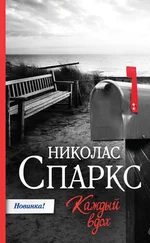In the car, Ruth is quiet. I know she has more questions about Daniel, but at the time, I had not thought to ask them. This, too, is one of my many regrets, for after that, I never saw Andrea again. Just as Daniel had vanished in 1963, she, too, vanished from my life.
“You hung the portrait above the fireplace,” she finally says. “And then you removed the other paintings from storage and hung them all over the house and stacked them in the rooms.”
“I wanted to see them. I wanted to remember again. I wanted to see you.”
Ruth is silent, but I understand. More than anything, Ruth would have wanted to see Daniel, if only through his wife’s eyes.
Day by day, after I’d read the letter and once the portrait of Ruth was hung, the depression began to lift. I began to eat more regularly. It would take over a year for me to gain back the weight I’d lost, but my life began to settle into a kind of routine. And in that first year after she died, yet another miracle – the third miracle in that otherwise tragic year – occurred that helped me find my way back.
Like Andrea, another unexpected visitor arrived at my doorstep – this time a former student of Ruth’s who came to the house to express her condolences. Her name was Jacqueline, and though I did not remember her, she too wanted to talk. She told me how much Ruth had meant to her as a teacher, and before she left, she showed me a tribute that she’d written in Ruth’s honor that would be published in the local paper. It was both flattering and revealing, and when it was published, it seemed to open the floodgates. Over the next few months, the parade of former students visiting my house swelled. Lindsay and Madeline and Eric and Pete and countless others, most of whom I’d never known existed, showed up at my door at unexpected moments, sharing stories about my wife’s years in the classroom.
Through their words, I came to realize that Ruth had been a key who unlocked the possibilities of so many people’s lives – mine was only the first.
The years after Ruth’s death, I sometimes think, can be divided into four phases. The depression and recovery after Ruth’s passing was the first of those phases; the period in which I tried to move on as best I could was the second. The third phase covered the years following the reporter’s visit in 2005, when the bars went up on the windows. It wasn’t until three years ago, however, that I finally decided what to do with the collection, which led to the fourth and final phase.
Estate planning is a complicated affair, but essentially, the question boiled down to this: I had to decide what to do with our possessions, or the state would end up deciding for me. Howie Sanders had been pressing Ruth and me for years to make a decision. He asked us whether there were any charities of which I was particularly fond or whether I wanted the paintings to go to a particular museum. Perhaps I wanted to auction them off, with the proceeds earmarked for specific organizations or universities? After the article appeared – and the potential value of the collection became a topic of heated speculation in the art world – he became even more persistent, though by then I was the only one who was there to listen.
It wasn’t until 2008, however, that I finally consented to come to his office.
He had arranged meetings of a confidential nature with curators from various museums: New York’s Metropolitan Museum of Art, the Museum of Modern Art, the North Carolina Museum of Art, and the Whitney, as well as representatives from Duke University, Wake Forest, and the University of North Carolina at Chapel Hill. There were individuals from the Anti-Defamation League and United Jewish Appeal – a couple of my father’s favorite organizations – as well as someone from Sotheby’s. I was ushered into a conference room and introductions were made, and on each of their faces, I could read an avid curiosity as they wondered how Ruth and I – a haberdasher and a schoolteacher – had managed to accumulate such an extensive private modern art collection.
I sat through a series of individual presentations, and in each instance, I was assured that any portion of the collection that I cared to put in their hands would be valued fairly – or, in the case of the auctioneer, maximized. The charities promised to put the money toward any causes that were special to Ruth and me.
I was tired by the time the day ended, and upon my return home, I fell asleep almost immediately in the easy chair in the living room. When I woke, I found myself staring at the painting of Ruth, wondering what she would have wanted me to do.
“But I did not tell you,” Ruth says quietly. It has been a while since she has spoken, and I suspect that she’s trying to conserve my strength. She, too, can feel the end coming.
I force my eyes open, but she is nothing but a blurry image now. “No,” I answer. My voice is ragged and slurry, almost unintelligible. “You never wanted to discuss it.”
She tilts her head to look at me. “I trusted you to make the decision.”
I can remember the moment when I finally made up my mind. It was early evening, a few days after the meetings at Howie’s office. Howie had called an hour earlier, asking if I had any questions or wanted him to follow up with anyone in particular. After I hung up, and with the help of my walker, I made my way to the back porch.
There were two rocking chairs flanking a small table, dusty from disuse. When we were younger, Ruth and I used to sit out here and talk, watching the stars emerge from hiding in the slowly darkening sky. Later, when we were older, these evenings on the back porch became less frequent, because both of us had grown more sensitive to the temperature. The cold of winter and the heat of summer rendered the porch unusable for more than half the year; it was only during the spring and fall that Ruth and I continued to venture out.
But on that night, despite the heat and the thick layer of dust on the chairs, I sat just as we used to. I pondered the meeting and everything that had been said. And it became clear that Ruth had been right: No one really understood.
For a while, I toyed with the idea of bequeathing the entire collection to Andrea Lockerby, if only because she, too, had loved Daniel. But I didn’t really know her, nor had Ruth. Besides, I couldn’t help feeling disappointed that despite the obvious influence that Ruth had had on Daniel’s life, he had never once tried to contact her. This I just could not understand, or entirely forgive, because I knew Ruth’s heart had been irreparably broken.
There was no easy answer, because for us, the art had never been about the money. Like the reporter, these curators and collectors, these experts and salespeople, didn’t understand. With the echo of Ruth’s words in my head, I finally felt the answer begin to take shape.
An hour later, I called Howie at his home. I told him that my intention was to auction the entire collection, and like a good soldier, he did not debate my decision. Nor did he question me when I explained that I wanted the auction held in Greensboro. However, when I told him how I wanted the auction to be handled, he was stunned into silence to the point where I wondered whether he was still connected. Finally, after clearing his throat, he talked with me about the specifics of all that it would entail. I told him that secrecy was the foremost priority.
Over the next few months, the details were arranged. I went to Howie’s office two more times and met with the representatives from Sotheby’s. I met again with the executive directors of various Jewish charities; the sums they would receive obviously depended on the auction itself and how much money the collection would fetch. To that end, appraisers spent weeks cataloging and photographing the entire collection, estimating value, and establishing provenance. Eventually, a catalog was sent for my approval. The estimated value of the collection was mind-boggling even to me, but again it did not matter.
Читать дальше
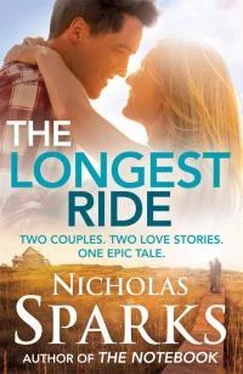


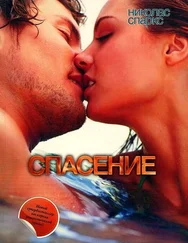

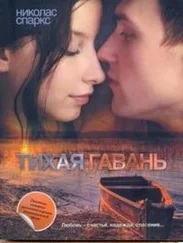
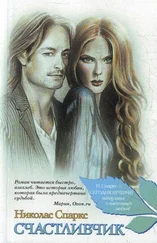

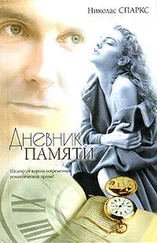
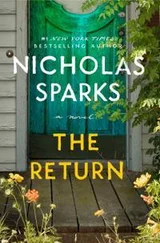
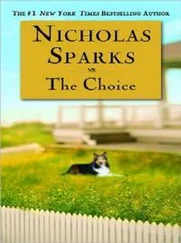
![Николас Спаркс - Каждый вдох [litres]](/books/414723/nikolas-sparks-kazhdyj-vdoh-litres-thumb.webp)
